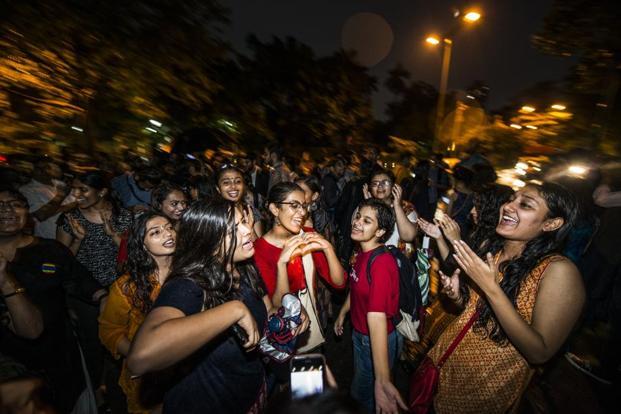(This was an oped I wrote in Mint.)
The end of section 377 is the culmination of a long struggle that activists, lawyers, academics, non-government organizations (NGOs), and the corporate world have been engaged in since the 1990s. After the initial relief of seeing the five concurring opinions of the bench, the language of the verdict is what struck me. It is a monumental text of our times.
The Supreme Court invokes the idea of a free India enshrined in our brilliant Constitution—as Chief Justice of India Dipak Misra said: “Morality cannot be martyred at the altar of social morality. Only Constitutional morality exists in our country.” It is heartening to see section 377 being pronounced “irrational, indefensible and manifestly arbitrary” by the Chief Justice of India.
The Indian LGBTQ (lesbian, gay, bisexual, transgender, transsexual, queer) community will remember 6 September as the day their faith in the power of the law to protect and empower was re-instilled.
Today’s judgement is a well-deserved victory for a community, which has suffered false hope, disappointments, and life as illegitimate citizens. However, the repealing of section 377 is not the end of the fight for equal rights—it will go down in history as a watershed moment for LGBTQ-inclusivity.
Given that we live in the age of neo-liberal capitalism, corporate India can be the instigators of change that make sure working LGBTQ Indians know they are respected and accepted. If most Indian companies become LGBT-friendly, can the rest of the society lag behind?
I juggle multiple roles at Godrej, so I’m uniquely positioned to see both a cultural, as well as a policy shift, in corporate India. We have had same-sex partner benefits, gender neutral adoption leave and an equal opportunity policy at Godrej for a few years now. But over the last two, I have seen an increase in the number of companies willing to adopt these policies.
I also run the Godrej India Culture Lab, which has been promoting LGBTQ events and ideas of equality, since its inception. We have seen the power of stories and their ability to change minds and hearts. From the play Ek Madhav Baug to our explorations of LGBTQ fashion, aesthetics and performing arts, we have had several people come up to us and tell us how they have felt, seen and heard. We have had multiple stakeholders from the LGBTQ movement talk and perform at the Vikhroli campus, and the attendance of our LGBTQ events has risen exponentially over the years.
As a Culture Lab initiative, I am also writing a paper on transgender inclusion at the workplace with my team. With this landmark judgement, companies cannot cite section 377 as a reason to not work toward inclusivity in their offices any more. We’re hoping that this translates into employment for the trans community in the country. Using this momentum, corporate India should make a conscious move toward health insurance for gender affirmation surgery, gender-neutral restrooms and gender transition policies. Indians spend most of their time at the workplace and our creation of safe spaces should begin there.
Despite daily ignorance, harassment, homophobia and transphobia, today will mark the day that LGBTQ India celebrates the realisation of our basic freedoms. We have a lot to do. But for now, let’s celebrate.

